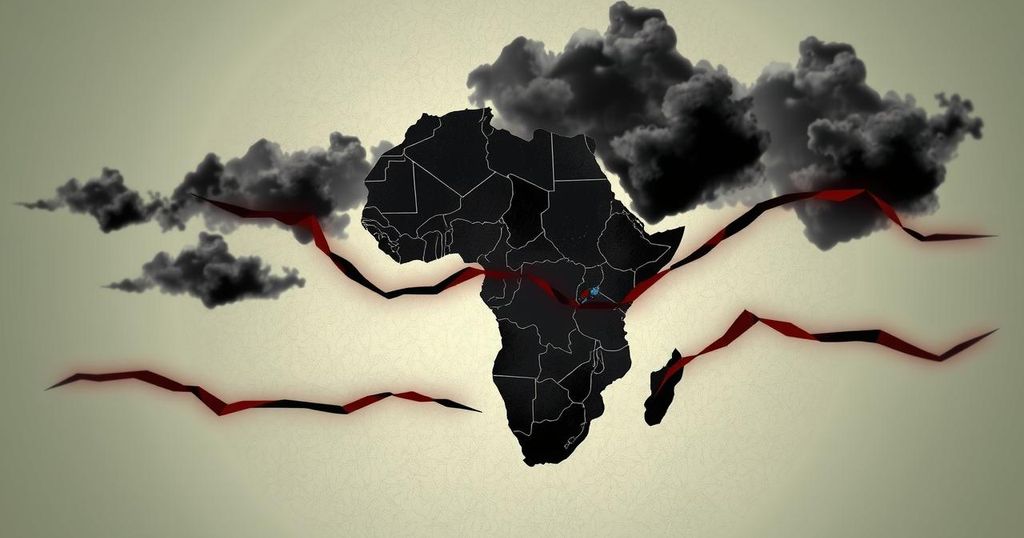The rebellion in eastern Congo, backed by Rwanda, has raised alarms about a potential regional conflict. The M23 rebels’ occupation of Goma and advances toward Bukavu led to a summit among regional leaders, though little concrete action was agreed upon. The complex interplay of regional politics underscores the challenges of establishing lasting peace amidst historical tensions and competing interests.
The potential for the ongoing rebellion in eastern Congo, backed by Rwanda, to escalate into a broader regional conflict is a pressing concern, as highlighted by recent analyses. The M23 rebels, having seized the city of Goma and advancing towards Bukavu, have prompted regional leaders to convene a summit aimed at addressing this conflict. However, despite calls for a ceasefire, no definitive strategies for ending the violence were proposed, and there was no demand for the rebels to pull back from captured territories.
Congolese President Felix Tshisekedi seeks assistance from regional alliances to counter the M23’s resurgence since late 2021. This has led to complications, as Rwanda, Burundi, and Uganda have engaged militarily in varying capacities. The situation is reminiscent of a complex marriage, where Tshisekedi navigates varying interests, especially amidst Rwanda’s perceived exclusion from alliance efforts.
The M23 rebels are perceived by the Congolese government as agents of Rwanda, with allegations of exploiting the country’s vast mineral resources. The conflict’s roots also tie back to Rwanda’s long-standing fears over Hutu militants operating in eastern Congo, which exacerbates tensions. With the rebels aiming to expand their control, concerns over regional escalation rise, fueled by historical animosities.
Increased turmoil in eastern Congo risks reinstating chaos similar to the late 1990s when various nations intervened under the pretext of protecting sovereignty. Analysts assert that both Rwandan President Paul Kagame and Ugandan President Yoweri Museveni, despite their existing frictions, are pivotal in any potential resolution, as their interests must be addressed in peace negotiations. Additionally, Burundi’s involvement adds an extra layer of complexity, following accusations of Rwandan aggression against Burundian territory.
Efforts to mediate peace have faced significant hurdles, exacerbated by Congo’s refusal to recognize the legitimacy of the M23 and Rwanda’s allegations of collaborator activities among foreign troops. The summit in Tanzania showcased a diplomatic drive; however, without a clear plan for addressing sovereignty concerns, the prospects for peace remain uncertain amidst fears of escalating violence.
The regional conflict in eastern Congo, fueled by the M23 rebellion, poses a significant risk of drawing in neighboring countries, complicating the geopolitical landscape. Despite recent diplomatic efforts, substantive solutions remain elusive, with neighboring interests conflicting and historical grievances resurfacing. The situation demands urgent and cohesive regional cooperation to prevent further escalation and protect the sovereignty of the Democratic Republic of Congo.
Original Source: apnews.com




